The eightieth session of the United Nations General Assembly (UNGA), which will open in New York on 9 September, followed two weeks later by the more prominent segment traditionally attended by presidents and heads of government, promises to be particularly significant for the largest, best-known, and today perhaps most scrutinised multilateral organisation.
Beyond the inevitable celebrations—which will engage nearly the entire membership in commemorative side events, including a special plenary session of the General Assembly, an exhibition of historical documents including the original Charter, significant participation in ‘Expo Osaka 2025,’ and many other initiatives—this will be the ideal moment to address, with candour, how the ‘Glass Palace’ might regain, on the international stage, if not the central role it played for several decades after the Second World War, at least a position of acknowledged relevance.
Both the clear intentions of its founding members and the high principles enshrined in the Charter, signed in June 1945 in San Francisco, committed the community of States to pursue the goals of Peace, development, security, and respect for human rights, recognised as global and indivisible assets. While, 80 years on, these goals remain as vital and urgent as ever, the legitimate question arises as to whether the world’s most inclusive organisation is capable of successfully addressing the unprecedented challenges of the twenty-first century—challenges marked by their variety and the severity of their consequences.
There is little doubt that the global crises we are currently facing—prolonged wars with limited prospects for resolution, mass migrations, radical climate change, worsening social inequalities, the escalating strain on global cooperation, and the threats posed by the rise of authoritarianism—have laid bare the urgent need, both in New York and across the world’s capitals, for determined and courageous leadership, willing to regard dialogue and negotiation as the essential tools—almost the “weapons”—to resolve the many areas of conflict now affecting our planet.
At the time of writing, the agenda for the New York proceedings has not yet been finalised in detail, preventing us from offering a fully comprehensive overview. One topic of exceptionally high political sensitivity—the recognition of the State of Palestine—can, however, already be expected to feature on the various agendas, given the declared intention of some major “Western” countries (France, the United Kingdom, and Australia) to proceed in this direction during the eightieth UNGA, “subject to certain conditions”. If these conditions are met and the plan comes to fruition, it would not only result in a further increase in the number of UN members willing to take this significant step, but also signal a regained “pivot” role for the United Nations itself, potentially countering the prevailing view of its worryingly marginal role.
We would like to devote the final part of our analysis to a dossier of undeniable importance and to a development that appears to be emerging with growing authority. The ‘dossier’ in question concerns the current Secretary-General, António Guterres of Portugal, and his second and final term, which is set to expire at the end of 2026. Also owing to the complexity of the appointment process—over which each permanent member of the Security Council may exercise a veto—the selection of the tenth Secretary-General of the organisation (or the eleventh, if one counts Gladwyn Jebb of the UK, who served briefly as interim from 1945 to 1946) is likely to commence, albeit discreetly and behind the scenes, during the upcoming General Assembly.
The emerging “trend” relates to the recent public statement by the former foreign ministers of the Latin American and Caribbean countries (the so-called GRULAC group, comprising 33 members), who unanimously expressed support for a future female Secretary-General—preferably from their geographical region—to finally put an end to a “prolonged, unjustified gender discrimination".
In this regard, several highly respected female candidates in the past—particularly Gro Harlem Brundtland from Norway, the New Zealander Helen Clark, and Irina Bokova from Bulgaria—had been seriously considered for the post, but ultimately succumbed to their male competitors. To conclude, it should be noted that even within what has so far been an exclusively male domain, the principle of rotation among continents has only been applied sparingly, as confirmed by the fact that half of the selected Secretaries-General (including the current one) have come from Europe.
Against this backdrop of repeated setbacks, the appointment of a woman would thus be a virtually “revolutionary” choice, grounded in the principles of Peace, solidarity, and cooperation, which—according to the aforementioned GRULAC document—an unprecedented female occupant of the Glass Palace would be particularly well positioned to promote and implement within the context of future global governance.
To sum up, the clear stance described above appears, in principle, far from misplaced and indeed worthy of serious consideration. For it to be put into practice, however, a series of significant obstacles must be overcome, the most challenging of which will undoubtedly be securing the unanimous “green light” from the five permanent members with veto power. As is well known, although these members cannot put forward their own national candidates, they are traditionally extremely vigilant in preventing the appointment of any individual—regardless of gender—who does not have their full trust and unconditional approval.
Reggente Marco Marsilli, Foundation President
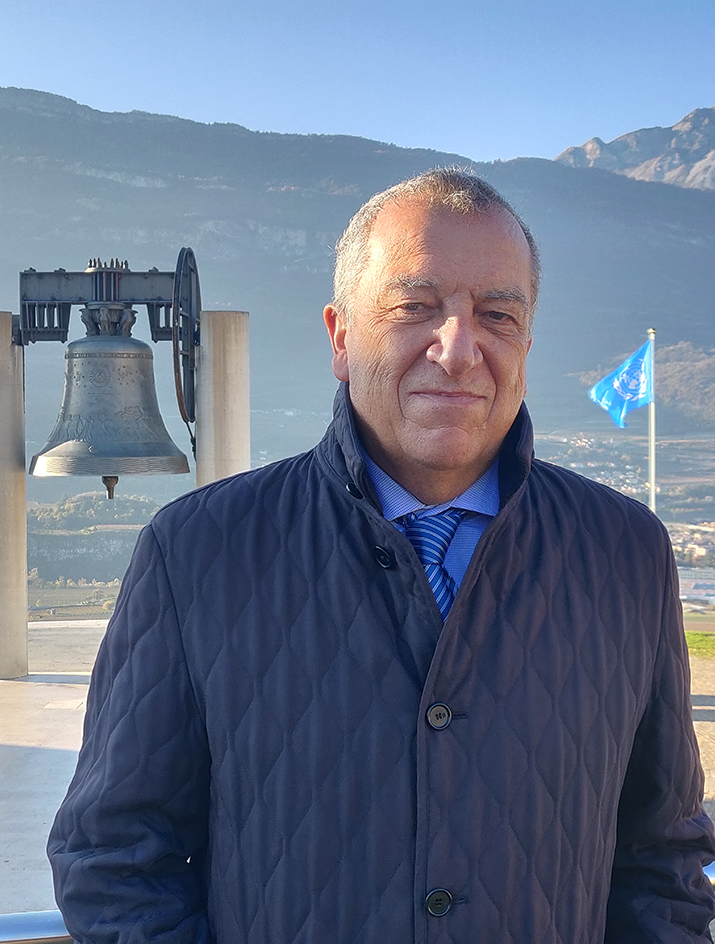
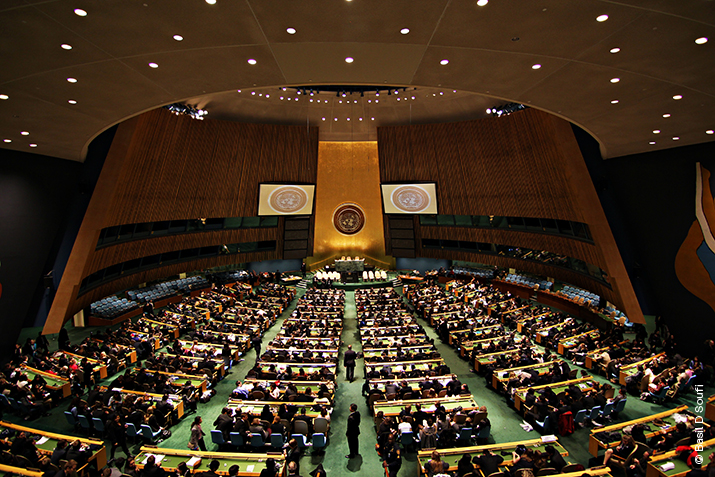
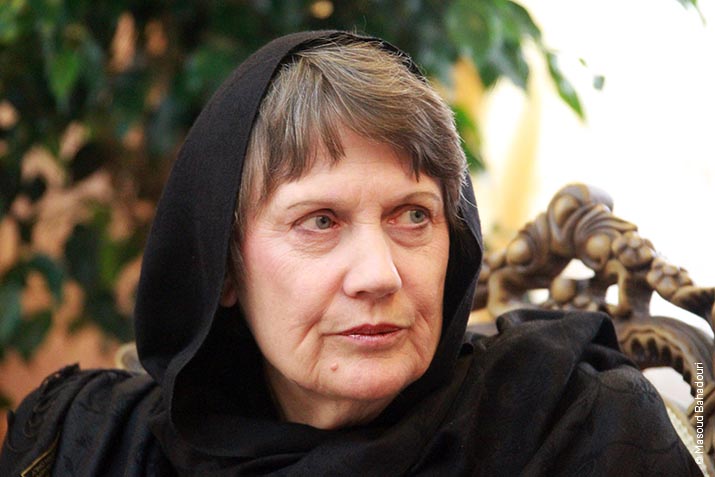
Helen Clark in Iran
.jpg)
Gro Harlem Bruntland
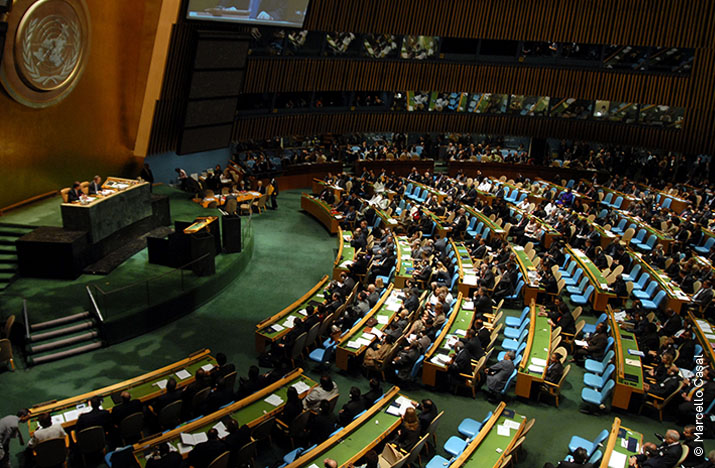
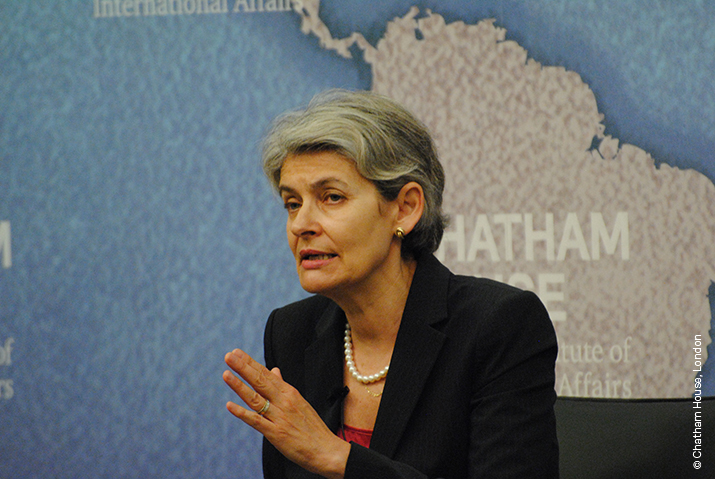
Irina Bokova






